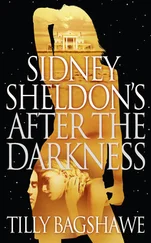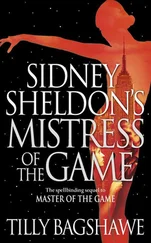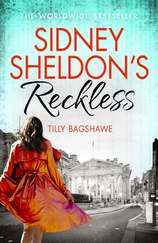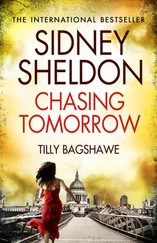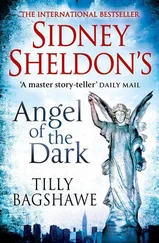“Certainly I am aware of that,” Machada snapped. “But this is not one of them.”
Rendell shrugged. “I bow to your judgment.” He started to move on.
“I personally purchased this painting. It has passed the spectrograph test, the pigment test —”
“I do not doubt it. Lucas painted in the same period as Goya, and used the same materials.” Henri Rendell bent down to examine the signature at the bottom of the painting. “You can reassure yourself very simply, if you wish. Take the painting back to your restoration room and test the signature.” He chuckled with amusement. “Lucas's ego made him sign his own paintings, but his pocketbook forced him to forge Goya's name over his own, increasing the price enormously.” Rendell glanced at his watch. “You must forgive me. I'm afraid I am late for an engagement. Thank you so much for sharing your treasures with me.”
“Not at all,” the director said coldly. The man is obviously a fool, he thought.
“I am at the Villa Magna, if I can be of service. And thank you again, seсor.” Henri Rendell departed.
Christian Machada watched him leave. How dare that Swiss idiot imply that the precious Goya was a fake!
He turned to look at the painting again. It was beautiful, a masterpiece. He leaned down to examine Goya's signature. Perfectly normal. But still, was it possible? The tiny seed of doubt would not go away. Everyone knew that Goya's contemporary, Eugenio Lucas y Padilla, had painted hundreds of fake Goyas, making a career out of forging the master. Machada had paid $3.5 million for the Goya Puerto. If he had been deceived, it would be a terrible black mark against him, something he could not bear to think about.
Henri Rendell had said one thing that made sense: There was, indeed, a simple way to ascertain its authenticity. He would test the signature and then telephone Rendell and suggest most politely that perhaps he should seek a more suitable vocation.
The director summoned his assistant and ordered the Puerto moved to the restoration room.
The testing of a masterpiece is a very delicate operation, for if it is done carelessly, it can destroy something both priceless and irreplaceable. The restorers at the Prado were experts. Most of them were unsuccessful painters who had taken up restoration work so they could remain close to their beloved art. They started as apprentices, studying under master restorers, and worked for years before they became assistants and were allowed to handle masterpieces, always under the supervision of senior craftsmen.
Juan Delgado, the man in charge of art restoration at the Prado, placed the Puerto on a special wooden rack, as Christian Machada watched.
“I want you to test the signature,” the director informed him.
Delgado kept his surprise to himself. “Sн, Senor Director.”
He poured isopropyl alcohol onto a small cotton ball and set it on the table next to the painting. On a second cotton ball he poured petroleum distillate, the neutralizing agent.
“I am ready, seсor.”
“Go ahead then. But be careful!”
Machada found that it was suddenly difficult for him to breathe. He watched Delgado. lift the first cotton ball and gently touch it to the G in Goya's signature. Instantly, Delgado picked up the second cotton ball and neutralized the area, so that the alcohol could not penetrate too deeply. The two men examined the canvas.
Delgado was frowning. “I'm sorry, but I cannot tell yet,” he said. “I must use a stronger solvent.”
“Do it,” the director commanded.
Delgado opened another bottle. He carefully poured dimenthyl petone onto a fresh cotton ball and with it touched the first letter of the signature again, instantly applying the second cotton ball. The room was filled with a sharp, pungent odor from the chemicals. Christian Machada stood there staring at the painting, unable to believe what he was seeing. The G in Goya's name was fading, and in its place was a clearly visible L.
Delgado turned to him, his face pale. “Shall — shall I go on?”
“Yes,” Machada said hoarsely. “Go on.”
Slowly, letter by letter, Goya's signature faded under the application of the solvent, and the signature of Lucas materialized. Each letter was a blow to Machada's stomach. He, the head of one of the most important museums in the world, had been deceived. The board of directors would hear of it; the King of Spain would hear of it; the world would hear of it. He was ruined.
He stumbled back to his office and telephoned Henri Rendell.
The two men were seated in Machada's office.
“You were right,” the director said heavily. “It is a Lucas. When word of this gets out, I shall be a laughing stock.”
“Lucas has deceived many experts,” Rendell said comfortingly. “His forgeries happen to be a hobby of mine.”
“I paid three and a half million dollars for that painting.”
Rendell shrugged. “Can you get your money back?”
The director shook his head in despair. “I purchased it directly from a widow who claimed it had been in her husband's family for three generations. If I sued her, the case would drag on through the courts and it would be bad publicity. Everything in this museum would become suspect.”
Henri Rendell was thinking hard. “There is really no reason for the publicity at all. Why don't you explain to your superiors what has happened, and quietly get rid of the Lucas? You could send the painting to Sotheby's or Christie's and let them auction it off.”
Machada shook his head. “No. Then the whole world would learn the story.”
Rendell's face brightened. “You may be in luck. I might have a client who would be willing to purchase the Lucas. He collects them. He is a man of discretion.”
“I would be glad to get rid of it. I never want to see it again. A fake among my beautiful treasures. I'd like to give it away,” he added bitterly.
“That will not be necessary. My client would probably be willing to pay you, say, fifty thousand dollars for it. Shall I make a telephone call?”
“That would be most kind of you, Seсor Rendell.”
At a hastily held meeting the stunned board of directors decided that the exposure of one of the Prado's prize paintings as a forgery had to be avoided at any cost. It was agreed that the prudent course of action would be to get rid of the painting as quietly and as quickly as possible. The dark-suited men filed out of the room silently. No one spoke a word to Machada, who stood there, sweltering in his misery.
That afternoon a deal was struck. Henri Rendell went to the Bank of Spain and returned with a certified check for $50,000, and the Eugenio Lucas y Padilla was handed over to him, wrapped in an inconspicuous piece of burlap.
“The board of directors would be very upset if this incident were to become public,” Machada said delicately, “but I assured them that your client is a man of discretion.”
“You can count on it,” Rendell promised.
When Henri Rendell left the museum, he took a taxi to a residential area in the northern end of Madrid, carried the canvas up some stairs to a third-floor apartment, and knocked on the door. It was opened by Tracy. In back of her stood Cesar Porretta. Tracy looked at Rendell questioningly, and he grinned:
“They couldn't wait to get this off their handsl” Henri Rendell gloated.
Tracy hugged him. “Come in.”
Porretta took the painting and placed it on a table.
“Now,” the hunchback said, “you are going to see a miracle — a Goya brought back to life.”
He reached for a bottle of mentholated spirits and opened it. The pungent odor instantly filled the room. As Tracy and Rendell looked on, Porretta poured some of the spirits onto a piece of cotton and very gently touched the cotton to Lucas's signature, one letter at a time. Gradually the signature of Lucas began to fade. Under it was the signature of Goya.
Читать дальше




